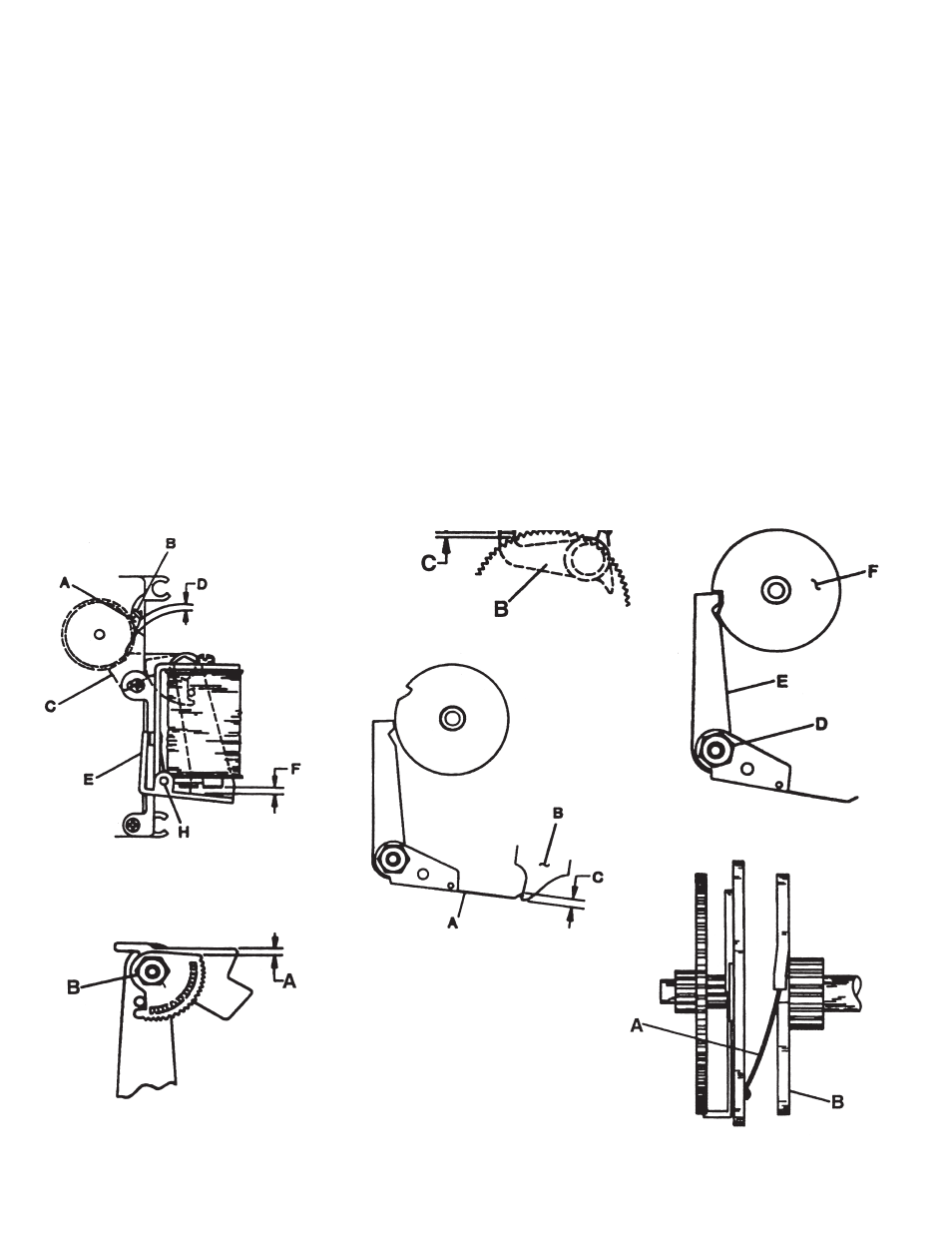American Time Synchronous Wired and Electronic Movement User Manual
Page 4

American Time - 140 3rd Street South - PO Box 707 - Dassel, MN 55325-0707
4
Adjustments:
See Fig. 62
1. With the correction solenoid de-energized and
pick-up pawl A resting against throwout lever B (as
illustrated), the clearance (D) between the lobe on lifting
arm C (when the lobe is at its closest point to pick-up
pawl A) should be .005" to .015". Adjustment is made
by forming armature projection E accordingly (this
should also result in a clearance of approximately .025"
at F).
2. With gear segment A bottomed in ratchet B, the
clearance at C should be .003". Adjustment is made
by loosening screws D, positioning the entire solenoid
assembly accordingly, and retightening the screws.
3. When engaged, the gear segment should mesh with
at least
2
/
3
of the width of the ratchet. Adjustment is
made by forming the armature are accordingly.
See Fig. 64
4. Spacing at A should be .075". Adjustment is
made by loosening nut B, positioning the gear segment
accordingly and re-tightening the nut.
See Fig. 65A and 65B
5. When throwout lever A causes pick-up pawl B
to disengage the ratchet, the clearance at C should
be .010". Adjustment is made by adjusting eccentric
stud D. Turning the stud positions aligned lever E and
controls the position at which stop disc F will stop. This
in turn raises or lowers the ratchet end of the pick-up
pawl when the pawl is engaged by the throwout lever.
S
ee Fig. 66
6. With the aligned lever in the seconds stop position
(as illustrated), there should be an overlap at C of .015",
between stop spring A and the projection on friction
coupling assembly B. Adjustment is made by forming
stop spring A accordingly.
See Fig. 67
7. During a correction cycle, pick-up spring A should
engage setting disc B as illustrated. Adjustment is made
by forming the spring accordingly.
Fig. 62
Fig. 65A
Fig. 65B
Fig. 64
Fig. 66
Fig. 67
